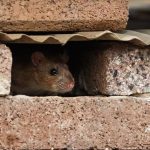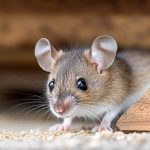Why Do Mice Squeak? Everything You Need To Know
Mice have long intrigued us with their unique behaviors and sounds. And squeaking is perhaps the most distinctive and commonly recognized among the various sounds they produce.
So, why do mice squeak? Mice squeak for various reasons, including asserting dominance, signaling danger, mating calls, and communicating the location of food and water. They also use these squeaking sounds to express emotions, soothe themselves, and interact with others.
Understanding their vocalizations will illuminate their social structures and habits, enriching your knowledge of these fascinating creatures. Read on to uncover the diverse array of sounds mice make, their social behaviors, and practical methods to address mouse-related issues.
Why Do Mice Squeak?
Mice produce their characteristic high-pitched squeaks through vocalizations made in their larynx. This vocal ability is essential for their communication and plays a significant role in their social interactions and survival. Here are some of the most typical causes of mice squeaks.
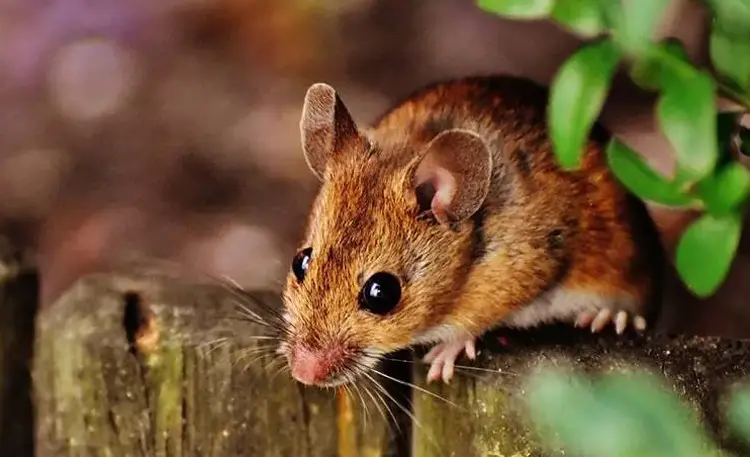
1. To Assert Dominance
Mice are inherently social creatures that form complex social hierarchies within their groups. Squeaking may ensue when two mice encounter each other and conflict arises over territory or resources.
This high-pitched sound allows the dominant mouse to assert its authority while the submissive one acknowledges the dominance by reducing aggression.
2. Signaling Danger
Given their small size and vulnerability, mice are constantly exposed to potential threats in their environment.
When they sense danger, such as the presence of predators or human activity, they emit high-pitched squeaks as an alarm call. This serves as a warning to their fellow mice.
3. Mating Call And Breeding
During the mating season, male mice produce unique vocalizations to attract potential mates. These calls are specific to each individual, enabling females to identify suitable partners for reproduction. Additionally, males also squeak while breeding with their female counterparts.
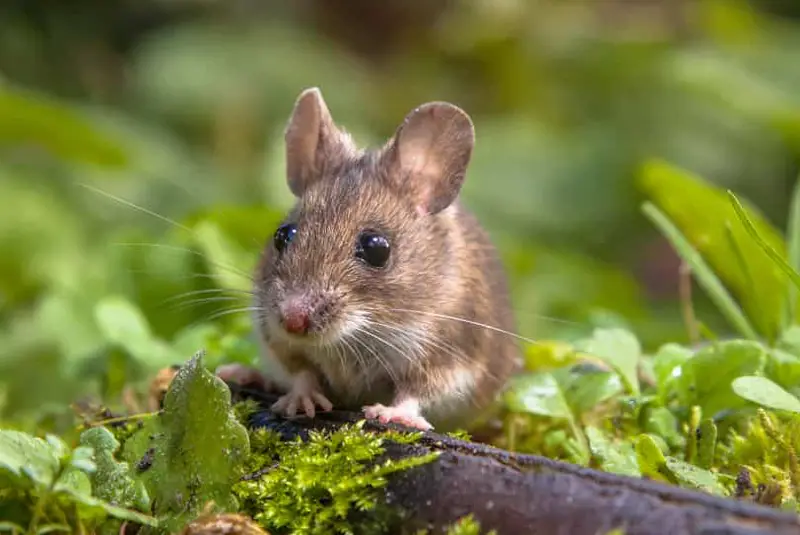
Once females give birth, they emit ultrasonic vocalizations to communicate with their offspring, ensuring their protection and care. This includes the young mouse squeaking when the mother leaves them alone or when she gets back.
4. Communicate the Location of Food and Water
Mice possess an exceptional ability to forage and locate essential resources like food and water. When they come across a new source of sustenance, they may emit squeaks to inform other group members about the discovery.
This cooperative communication ensures the entire community benefits from the newfound resources.
5. Self-Soothing (When Alone)
Mice, despite their small size, experience emotions and can become anxious or stressed when isolated from their companions. In such situations, they may resort to self-soothing mechanisms, which often include squeaking.
6. Indicate Happiness
Believe it or not, mice can express their happiness and contentment through squeaking. These high-pitched sounds are often observed during play or when they feel comfortable and secure in their environment.
7. Interacting with Each Other
Squeaking plays a significant role in mouse-to-mouse interactions. It acts as a form of communication during social bonding, grooming, and general socialization. Different types of squeaks convey distinct messages, reinforcing social cohesion and maintaining harmonious relationships within the group.
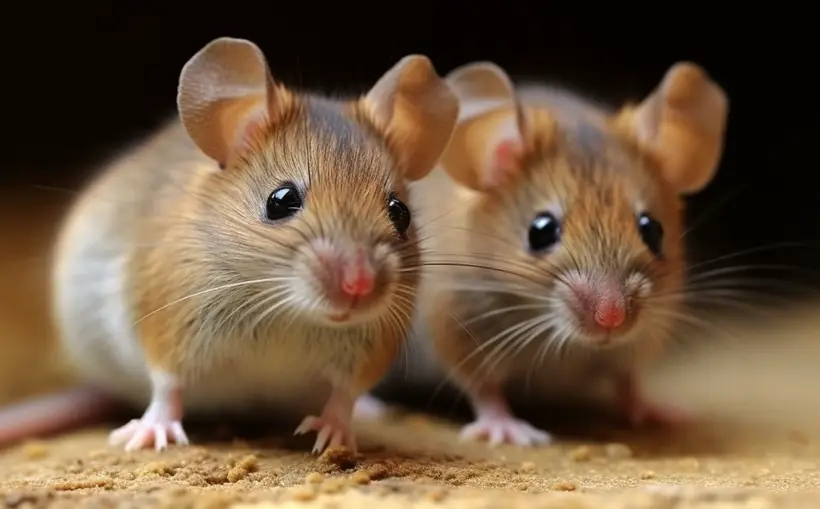
8. Indicate Stress/Anxiety
Similar to humans, mice can experience stress and anxiety. They may emit distress calls through squeaking when they find themselves in uncomfortable or threatening situations.
Paying attention to these sounds can help you identify when mice are under duress and may require assistance or a change in their environment. This is easily noticeable when you have a mouse as a pet.
What Other Sounds Do Mice Make?
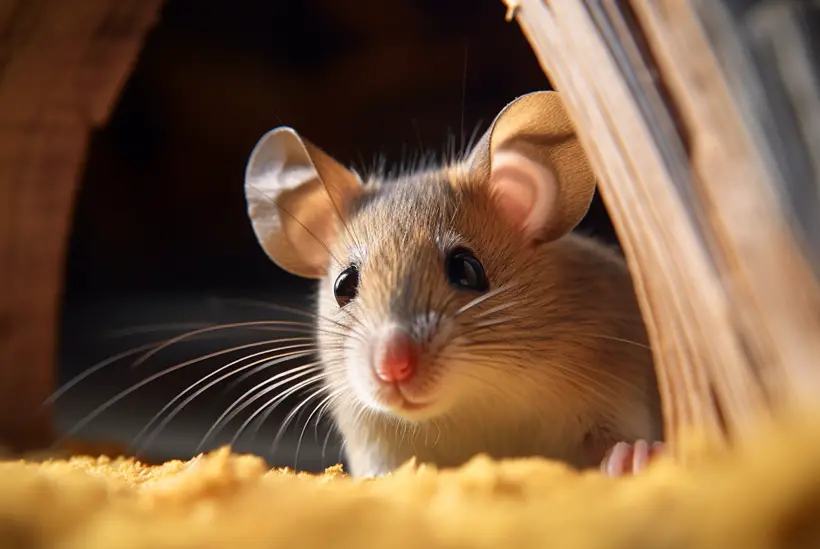
Beyond their characteristic squeaks, mice produce a range of other sounds, each with its distinct purpose and meaning.
- Scurrying: The sound of tiny feet scurrying across surfaces is a common indication of mouse activity. This noise typically occurs when mice explore their surroundings or seek food and shelter.
- Scratching: Mice are avid chewers, and their constant gnawing can create scratching sounds, especially when they are chewing on wooden or plastic surfaces to maintain their teeth.
- Chirping: In addition to their squeaks, mice sometimes produce softer chirping sounds, often associated with social interactions or during playfulness.
- Gnawing: As mentioned earlier, mice have a strong urge to gnaw on objects to wear down their constantly growing teeth. The sound of gnawing is a clear indication of their presence.
- Ultrasonic Vocalizations: Interestingly, mice also communicate using ultrasonic vocalizations, which are too high-pitched for human ears to detect. These sounds are especially prevalent during courtship, mating, and maternal interactions.
What Should You Do When You Hear Mice In Your House?
It’s essential to deal with the presence of mice promptly, as they can reproduce rapidly and lead to more significant infestations if left unchecked. Here are some detailed methods to handle the situation.
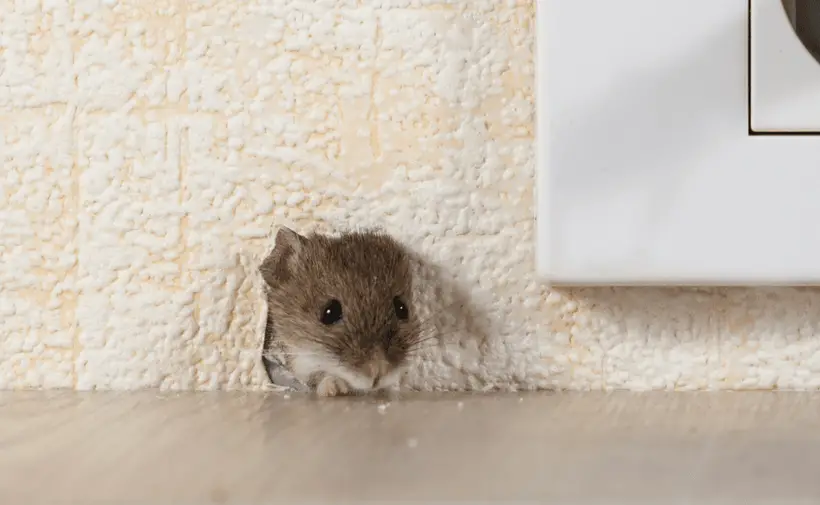
Method 1: Catch And Release
Using live traps is a humane approach to catching mice without causing them harm. Place bait, such as peanut butter or seeds, inside the trap and position it along walls or in areas where mouse activity is evident.
Once caught, release the mice far away from your home, preferably in a wooded area or open field. Remember to check the traps regularly to avoid undue stress on the captured mice.
Method 2: Use Scent Hindrances
Try employing natural repellents such as peppermint oil, ammonia, or clove oil to keep mice at bay. Soak cotton balls in the desired scent and strategically arrange them near suspected entry points or mouse activity.
Method 3: Seal Entry Points
Inspect your home extensively for any holes, fractures, or gaps that mice could enter through. Mice can fit through the smallest openings, so be thorough in your search.
To keep mice from entering your living space, seal these entry sites with caulk, steel wool, or other suitable materials.
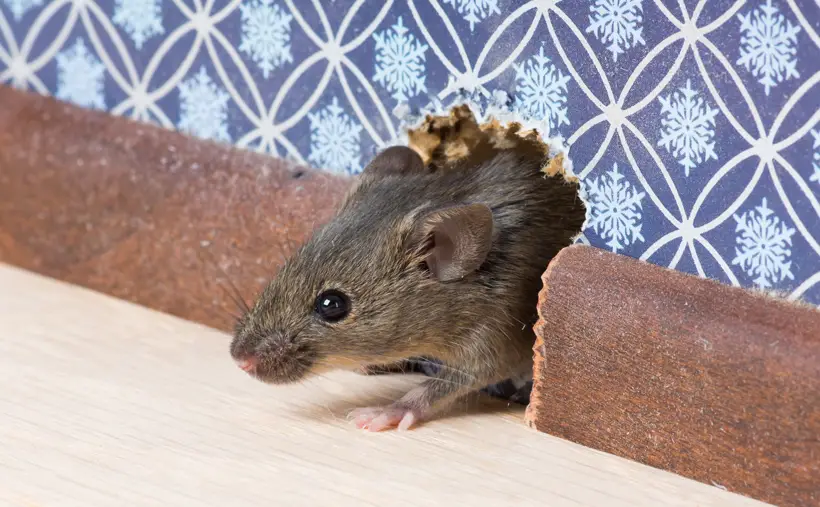
Method 4: Keep Your Kitchen Clean
Store your food in airtight containers to stop mice from accessing it, and keep countertops and floors clean from crumbs and spills. Regularly dispose of garbage in sealed bins, as open trash can be an invitation for mice to explore.
Method 5: Consult Pest Control Professionals
If the infestation persists or proves difficult to manage, consider seeking the assistance of pest control professionals.
These experts have the knowledge and tools to effectively identify and address the extent of the infestation. They are able to offer tailored solutions to rid your home of mice while minimizing risks to other wildlife and pets.
Method 6: Preventive Measures
Taking preventive measures is essential to avoid future infestations. Trim vegetation around your home, as overgrown plants can provide hiding spots for mice. Additionally, keep firewood and other materials away from your home’s exterior to reduce potential nesting sites.
Method 7: Adopt A Cat
Adopting a cat can be an effective natural deterrent for mice if you’re comfortable with pets. Cats are natural hunters and their presence alone can discourage mice from entering your home.
However, keep in mind that not all cats may be interested in hunting mice, so choose one with a known hunting instinct if this is a primary concern.
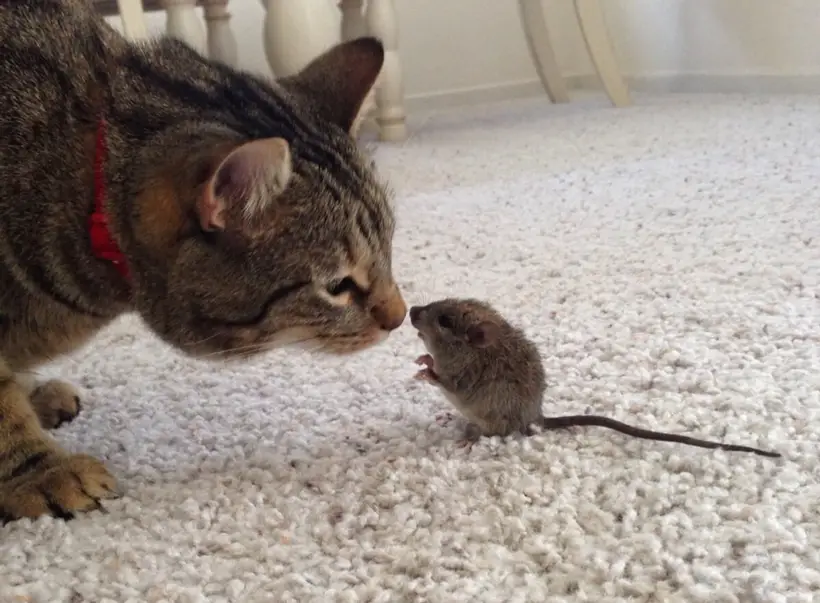
FAQs
Here are a few more related questions you might be interested in at the moment.
Q1: When are you likely to hear mice squeaking?
Mice are primarily nocturnal creatures, so you are most likely to hear them squeaking during the night when they are most active. As they forage for food or engage in social interactions, their squeaks may become more noticeable in the quiet hours of the evening.
Q2: Do mice squeak when dying?
Yes, when mice are dying, they may make squeaks or distress sounds. These sounds can also be indicators of pain, illness, or injury.
Q3: Are all mouse species equally vocal?
No, not all mouse species are equally vocal. While many species produce squeaks and other vocalizations, the frequency and complexity of their sounds can vary. Some species may rely more on non-vocal forms of communication, such as body language and scent markings.
Conclusion
So, why do mice squeak? They do so for a myriad of reasons, from communicating with their peers to indicating their emotions and alerting others of potential dangers. These vocal rodents exhibit fascinating social behavior and use their sounds to navigate and thrive in their environment.
Understanding why mice squeak and their various other sounds can provide valuable insights into their behavior and interactions. This is crucial to address the situation responsibly. That is why implementing humane methods for dealing with mice in your house can help you mitigate the pest situation.



